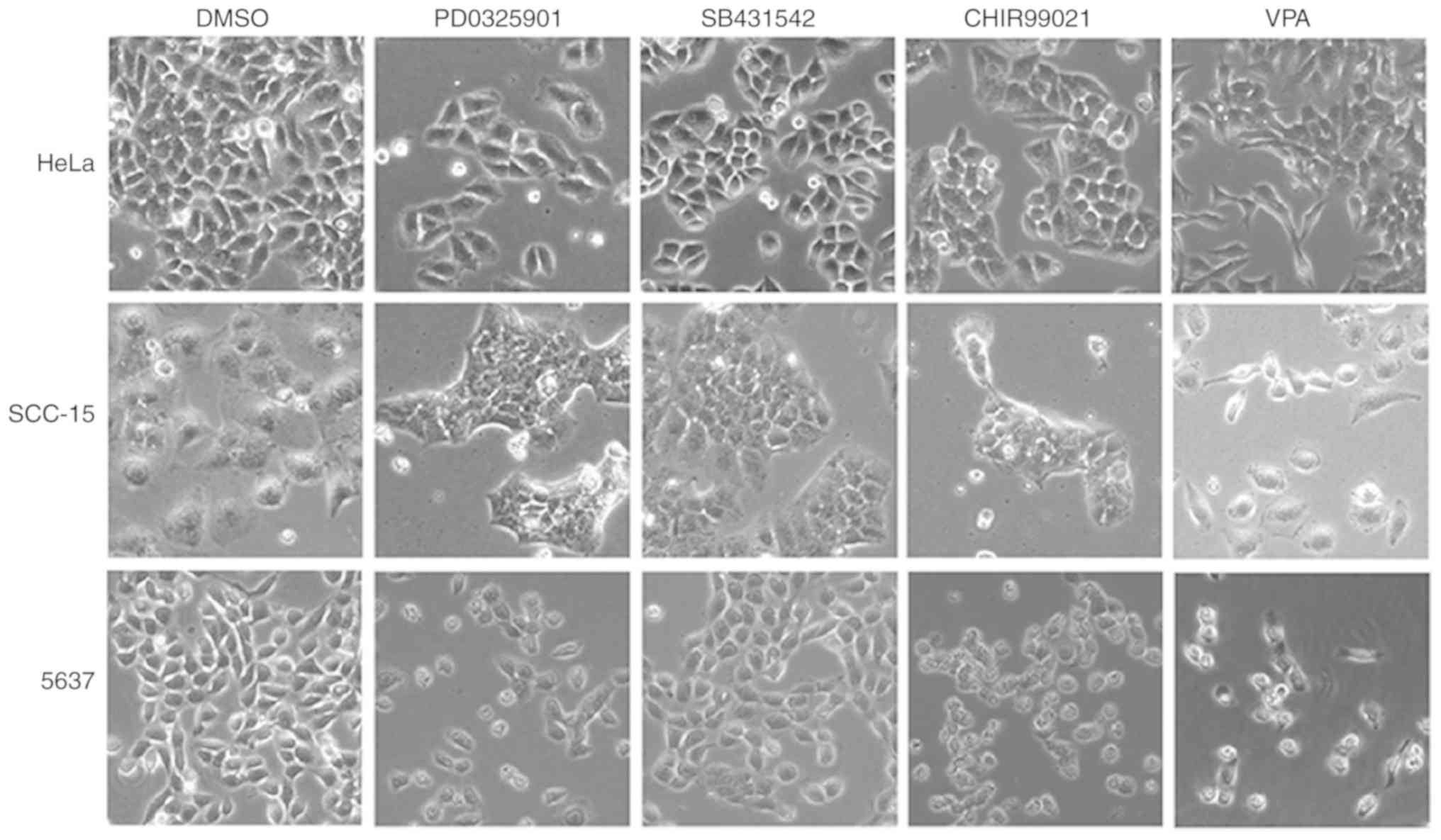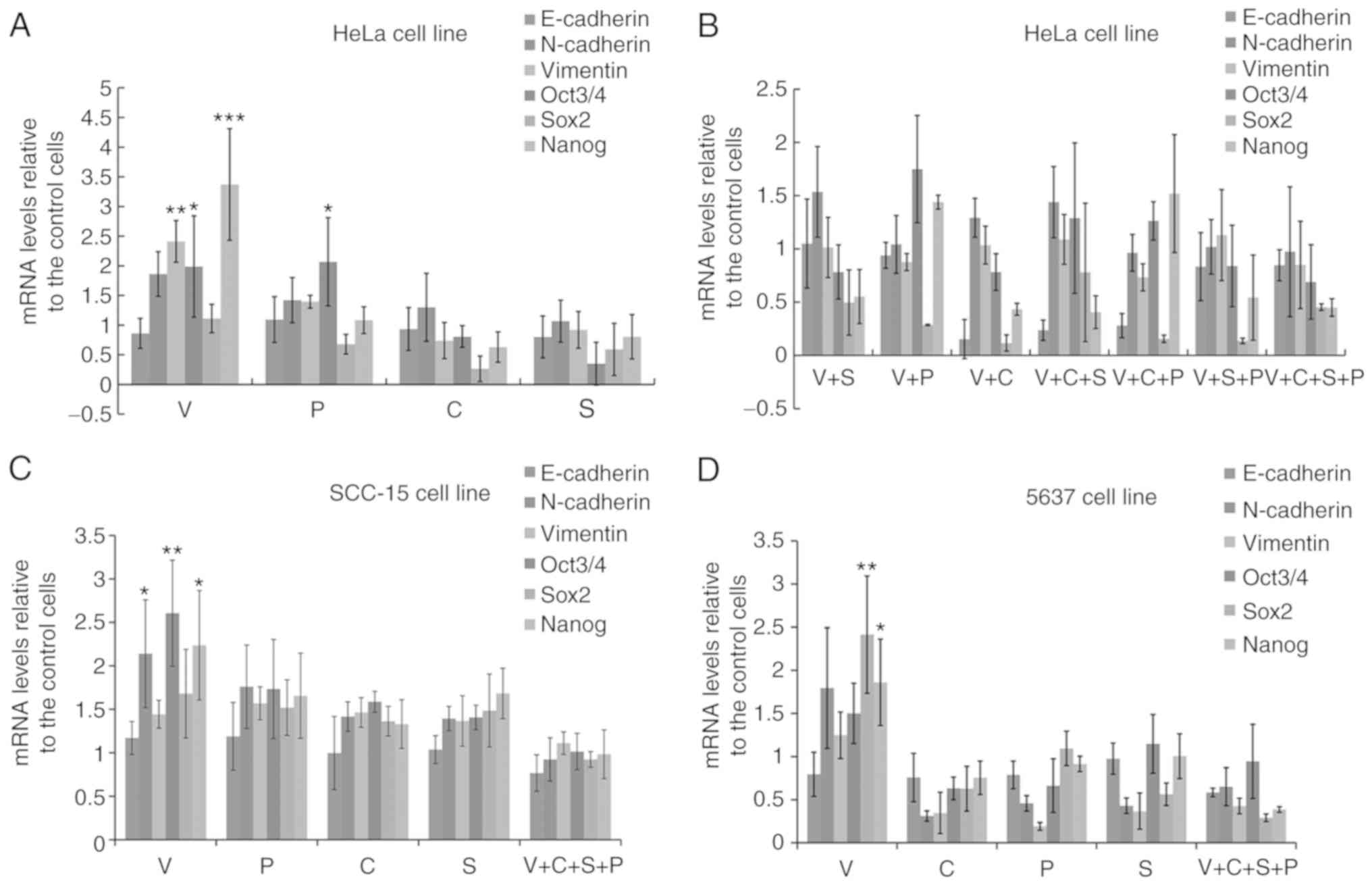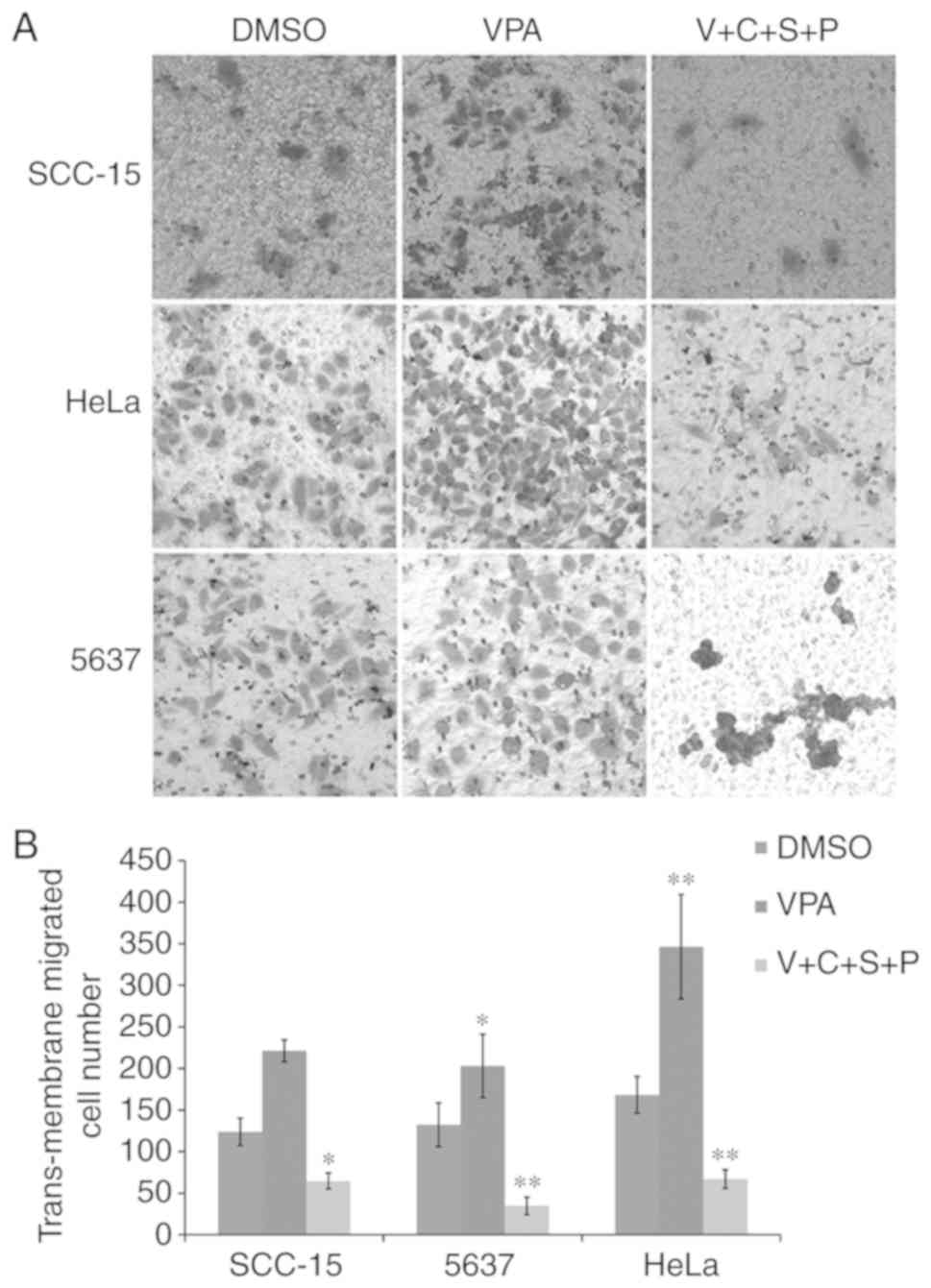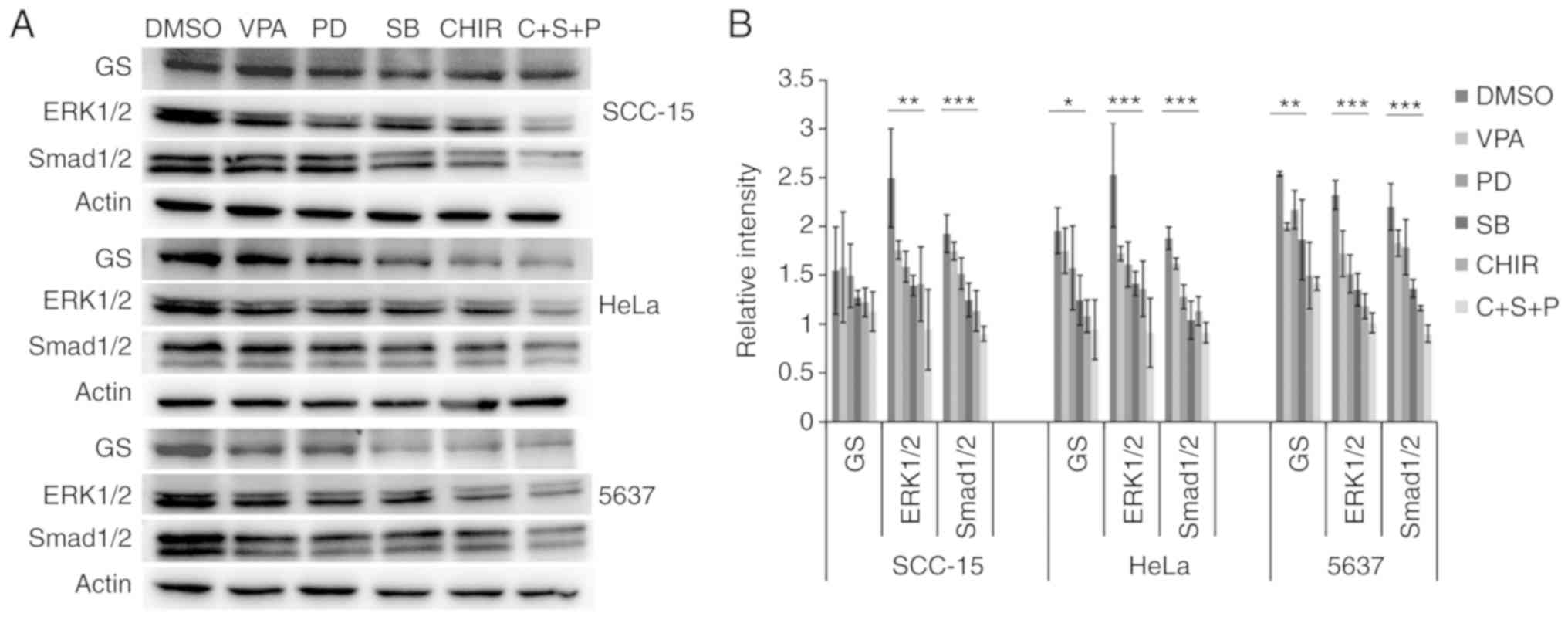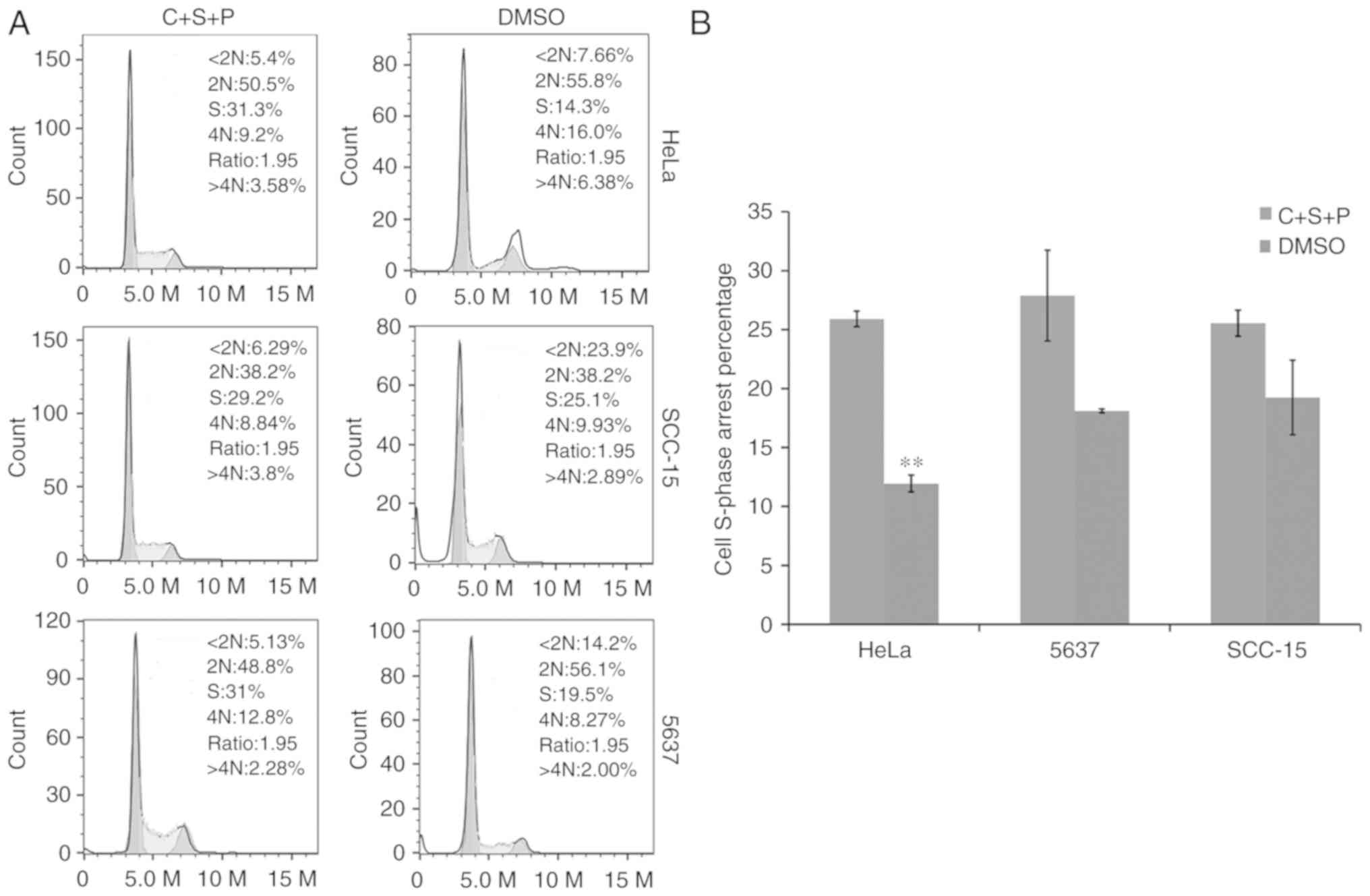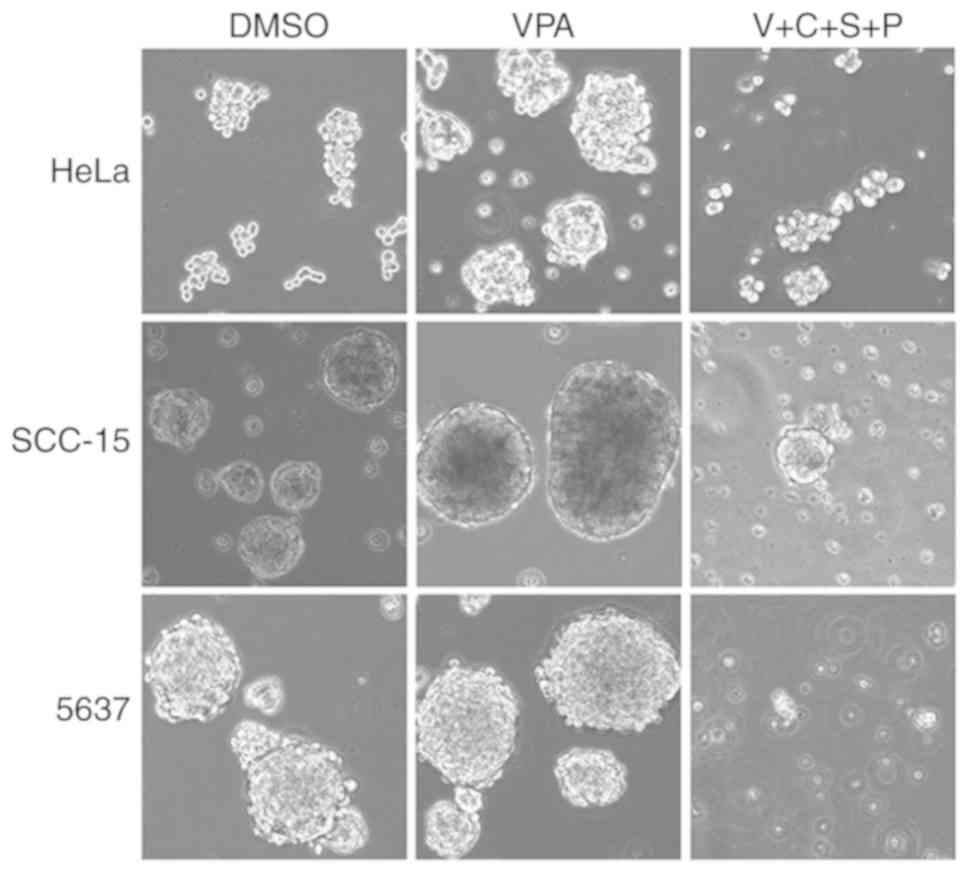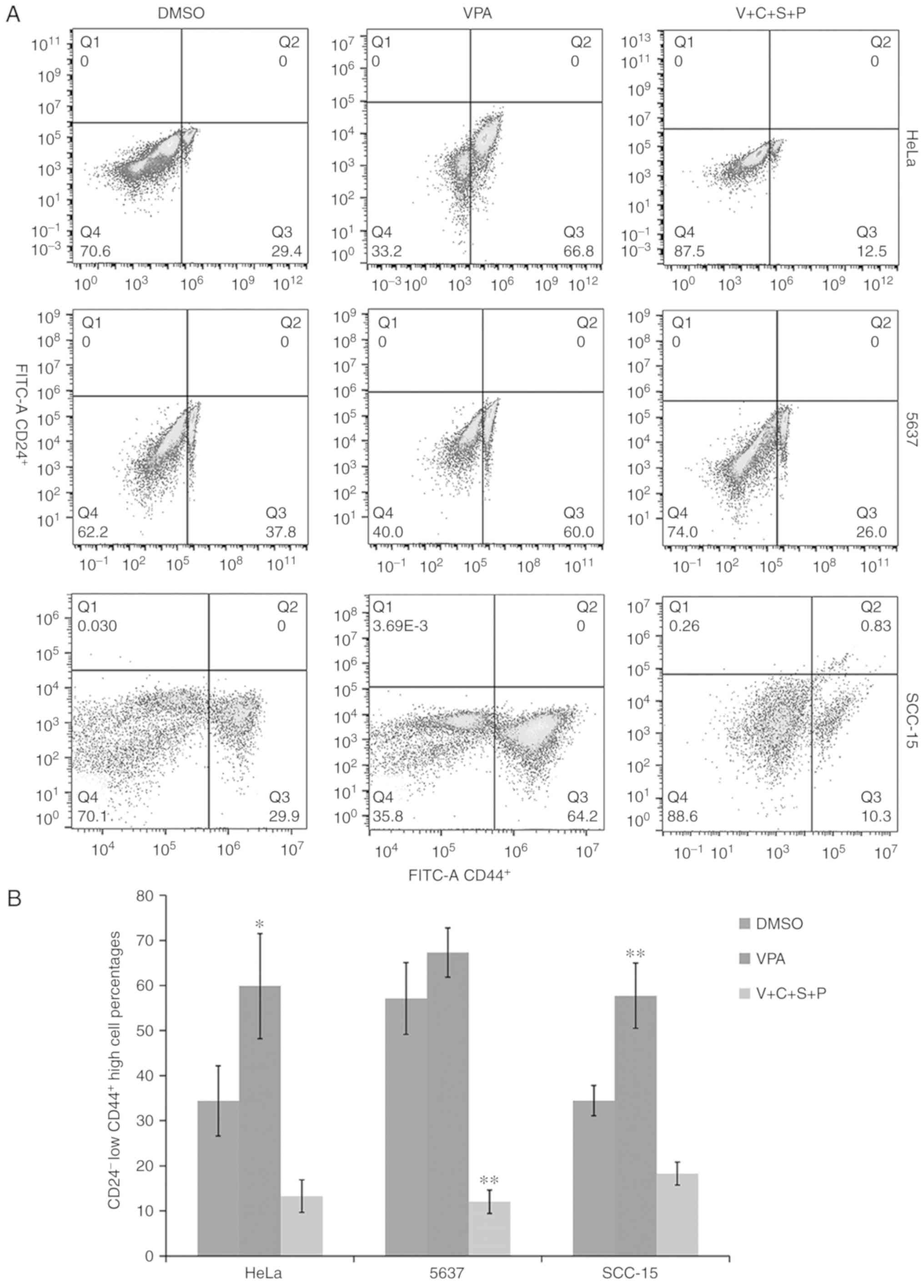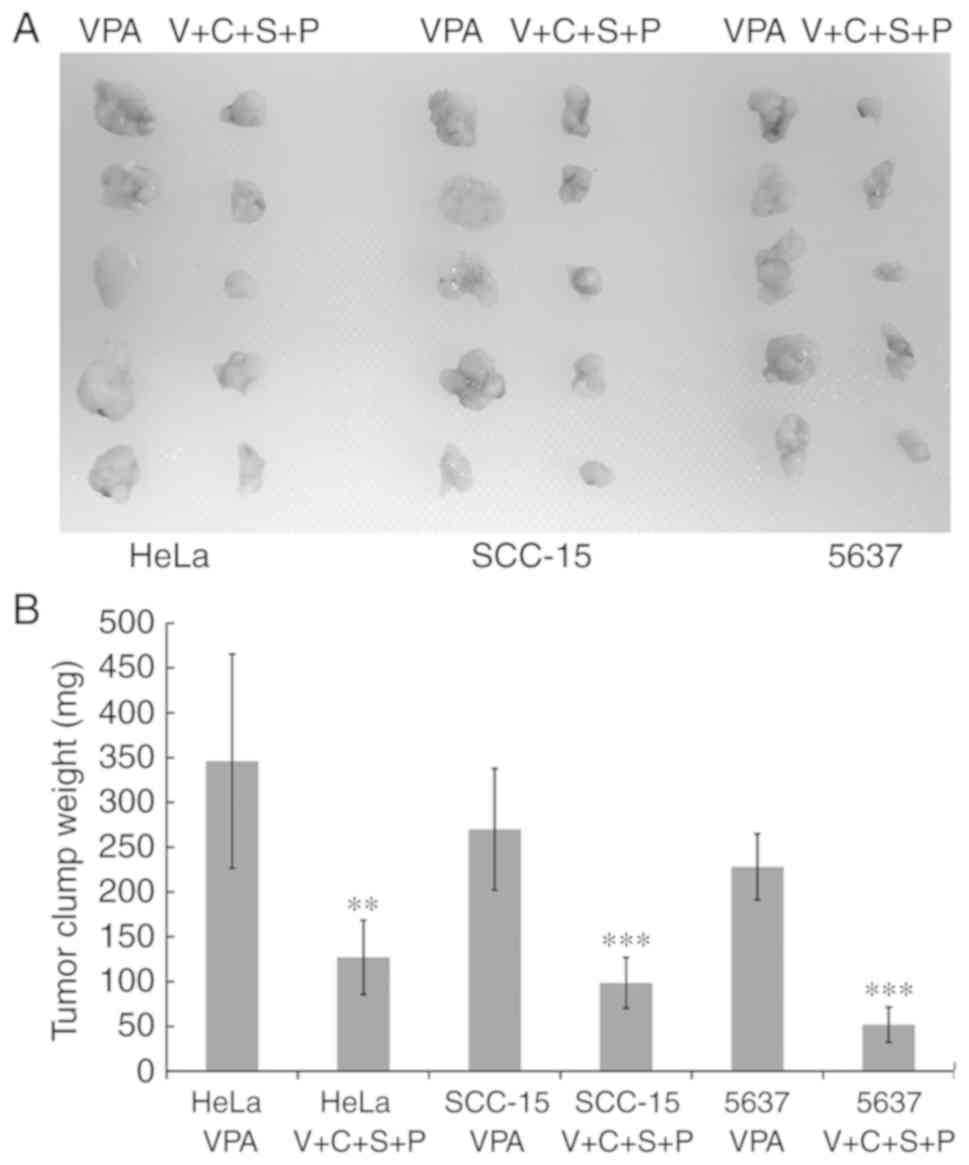|
1
|
Shi Y, Do JT, Desponts C, Hahm HS, Scholer
HR and Ding S: A combined chemical and genetic approach for the
generation of induced pluripotent stem cells. Cell Stem Cell.
2:525–528. 2008. View Article : Google Scholar : PubMed/NCBI
|
|
2
|
Lin TX, Ambasudhan R, Yuan X, Li WL,
Hilcove S, Abujarour R, Lin XY, Hahm HS, Hao E, Hayek A, et al: A
chemical platform forimproved induction of human iPscs. Nat
Methods. 6:805–808. 2009. View Article : Google Scholar : PubMed/NCBI
|
|
3
|
Huangfu DW, Osafune KJ, Maehr R, Guo WJ,
Eijkelenboom A, Chen SB, Muhlestein W and Melton DA: Induction of
pluripotent stem cells from primary human fibroblasts with only
Oct4 and Sox2. Nat Biotechnol. 26:1269–1275. 2008. View Article : Google Scholar : PubMed/NCBI
|
|
4
|
Li YQ, Zhang Q, Yin XL, Yang WF, Du YY,
Hou PP, Ge J, Liu C, Zhang WQ, Zhang X, et al: Generation of iPSCs
from mouse fibroblasts with a single gene, Oct4, and small
molecules. Cell Res. 21:196–204. 2011. View Article : Google Scholar : PubMed/NCBI
|
|
5
|
Ji MY, Lee EJ, Kim KB, Kim YM, Sung RY,
Lee SJ, Kim DS and Park SM: HDAC inhibitors induce
epithelial-mesenchymal transition in colon carcinoma cells. Oncol
Rep. 33:2299–2308. 2015. View Article : Google Scholar : PubMed/NCBI
|
|
6
|
Vincent EE, Elder DJ, O'Flaherty L, Pardo
OE, Dzien P, Phillips L, Morgan C, Pawade J, May MT, Sohail M, et
al: Glycogen synthase kinase 3 protein kinase activity is
frequently elevated in human non-small cell lung carcinoma and
supports tumour cell proliferation. PLoS One. 9:e1147252014.
View Article : Google Scholar : PubMed/NCBI
|
|
7
|
Chua KN, Kong LR, Sim WJ, Ng HC, Ong WR,
Thiery JP, Huynh H and Goh BC: Combinatorial treatment using
targeted MEK and SRC inhibitors synergistically abrogates tumor
cell growth and induces mesenchymal-epithelial transition in
non-small-cell lung carcinoma. Oncotarget. 6:29991–30005. 2015.
View Article : Google Scholar : PubMed/NCBI
|
|
8
|
Lu Y, Jiang F, Zheng X, Katakowski M,
Buller B, To SS and Chopp M: TGF-β1 promotes motility and
invasiveness of glioma cells through activation of ADAM17. Oncol
Rep. 25:1329–1335. 2011.PubMed/NCBI
|
|
9
|
Noguchi S, Eitoku M, Moriya S, Kondo S,
Kiyosawa H, Watanabe T and Suganuma N: Regulation of gene
expression by sodium valproate in epithelial-to-mesenchymal
transition. Lung. 193:691–700. 2015. View Article : Google Scholar : PubMed/NCBI
|
|
10
|
Hugo H, Ackland ML, Blick T, Lawrence MG,
Clements JA, Williams ED and Thompson EW: Epithelial-mesenchymal
and mesenchymal-epithelial transitions in carcinoma progression. J
Cell Physiol. 213:374–383. 2007. View Article : Google Scholar : PubMed/NCBI
|
|
11
|
Thiery JP: Epithelial-mesenchymal
transitions in tumour progression. Nat Rev Cancer. 2:442–454. 2002.
View Article : Google Scholar : PubMed/NCBI
|
|
12
|
Kong D, Li Y, Wang Z, Banerjee S, Ahmad A,
Kim HR and Sarkar FH: miR-200 Regulates PDGF-D-mediated
epithelial-mesenchymal transition, adhesion, and invasion of
prostate cancer cells. Stem Cells. 27:1712–1721. 2009. View Article : Google Scholar : PubMed/NCBI
|
|
13
|
Kong D, Banerjee S, Ahmad A, Li Y, Wang Z,
Sethi S and Sarkar FH: Epithelial to mesenchymal transition is
mechanistically linked with stem cell signatures in prostate cancer
cells. PLoS One. 5:e124452010. View Article : Google Scholar : PubMed/NCBI
|
|
14
|
Kong D, Li Y, Wang Z and Sarkar FH: Cancer
stem cells and epithelial-to mesenchymal transition
(EMT)-phenotypic cells: Are they cousins or twins? Cancers.
3:716–729. 2011. View Article : Google Scholar : PubMed/NCBI
|
|
15
|
Li Y, VandenBoom TG II, Kong D, Wang Z,
Ali S, Philip PA and Sarkar FH: Up-regulation of miR-200 and let-7
by natural agents leads to the reversal of epithelial-tomesenchymal
transition in gemcitabine-resistant pancreatic cancer cells. Cancer
Res. 69:6704–6712. 2009. View Article : Google Scholar : PubMed/NCBI
|
|
16
|
Singh A and Settleman J: EMT, cancer stem
cells and drug resistance: An emerging axis of evil in the war on
cancer. Oncogene. 29:4741–4751. 2010. View Article : Google Scholar : PubMed/NCBI
|
|
17
|
Robey RW, Chakraborty AR, Basseville A,
Luchenko V, Bahr J, Zhan Z and Bates SE: Histone deacetylase
inhibitors: Emerging mechanisms of resistance. Mol Pharm.
8:2021–2031. 2011. View Article : Google Scholar : PubMed/NCBI
|
|
18
|
Díaz-Núñez M, Díez-Torre A, Wever D,
Andrade R, Arluzea J, Silió M and Aréchaga J: Histone deacetylase
inhibitors induce invasion of human melanoma cells in vitro via
differential regulation of N-cadherin expression and RhoA activity.
BMC Cancer. 22:6672016. View Article : Google Scholar
|
|
19
|
Pang L, Li Q, Wei C, Zou H, Li S, Cao W,
He J, Zhou Y, Ju X, Lan J, et al: TGF-β1/Smad signaling pathway
regulates epithelial-to-mesenchymal transition in esophageal
squamous cell carcinoma: In vitro and clinical analyses of cell
lines and nomadic Kazakh patients from northwest Xinjiang, China.
PLoS One. 9:e1123002014. View Article : Google Scholar : PubMed/NCBI
|
|
20
|
Miao ZF, Zhao TT, Wang ZN, Miao F, Xu YY,
Mao XY, Gao J, Wu Jh, Liu XY, You Y, et al: Transforming growth
factor-beta1 signaling blockade attenuates gastric cancer
cell-induced peritoneal mesothelial cell fibrosis and alleviates
peritoneal dissemination both in vitro and in vivo. Tumour Biol.
35:3575–3583. 2014. View Article : Google Scholar : PubMed/NCBI
|
|
21
|
Kim YJ, Hwang JS, Hong YB, Bae I and Seong
YS: Transforming growth factor beta receptor I inhibitor sensitizes
drug-resistant pancreatic cancer cells to gemcitabine. Anticancer
Res. 32:799–806. 2012.PubMed/NCBI
|
|
22
|
Henderson YC, Chen Y, Frederick MJ, Lai SY
and Clayman GL: MEK inhibitor PD0325901 significantly reduces the
growth of papillary thyroid carcinoma cells in vitro and in vivo.
Mol Cancer Ther. 9:1968–1976. 2010. View Article : Google Scholar : PubMed/NCBI
|
|
23
|
Chen X, Wu Q, Tan L, Porter D, Jager MJ,
Emery C and Bastian BC: Combined PKC and MEK inhibition in uveal
melanoma with GNAQ and GNA11 mutations. Oncogene. 33:4724–4734.
2014. View Article : Google Scholar : PubMed/NCBI
|
|
24
|
Marchand B, Tremblay I, Cagnol S and
Boucher MJ: Inhibition of glycogen synthase kinase-3 activity
triggers an apoptotic response in pancreatic cancer cells through
JNK-dependent mechanisms. Carcinogenesis. 33:529–537. 2012.
View Article : Google Scholar : PubMed/NCBI
|
|
25
|
Lackner MR, Wilson TR and Settleman J:
Mechanisms of acquired resistance to targeted cancer therapies.
Future Oncol. 8:999–1014. 2012. View Article : Google Scholar : PubMed/NCBI
|
|
26
|
Yun CH, Mengwasser KE, Toms AV, Woo MS,
Greulich H, Wong KK, Meyerson M and Eck MJ: The T790M mutation in
EGFR kinase causes drug resistance by increasing the affnity for
ATP. Proc Natl Acad Sci USA. 105:2070–2075. 2008. View Article : Google Scholar : PubMed/NCBI
|
|
27
|
Buck E, Eyzaguirre A, Rosenfeld-Franklin
M, Thomson S, Mulvihill M, Barr S, Brown E, O'Connor M, Yao Y,
Pachter J, et al: Feedback mechanisms promote cooperativity for
small molecule inhibitors of epidermal and insulin-like growth
factor receptors. Cancer Res. 68:8322–8332. 2008. View Article : Google Scholar : PubMed/NCBI
|
|
28
|
Fukumoto S, Kanbara K and Neo M:
Synergistic anti-proliferative effects of mTOR and MEK inhibitors
in high-grade chondrosarcoma cell line OUMS-27. Acta Histochem.
120:142–150. 2018. View Article : Google Scholar : PubMed/NCBI
|
|
29
|
Langlands AJ, Carroll TD, Chen Y and
Näthke I: Chir99021 and Valproic acid reduce the proliferative
advantage of Apc mutant cells. Cell Death Dis. 9:2552018.
View Article : Google Scholar : PubMed/NCBI
|
|
30
|
Livak KJ and Schmittgen TD: Analysis of
relative gene expression data using real-time quantitative PCR and
the 2-ΔΔCT method. Methods. 25:402–408. 2001. View Article : Google Scholar : PubMed/NCBI
|
|
31
|
Lee YJ, Wu CC, Li J, Ou CC, Hsu SC, Tseng
HH, Kao MC and Liu JY: A rational approach for cancer stem-like
cell isolation and characterization using CD44 andprominin-1(CD133)
as selection markers. Oncotarget. 7:78499–78515. 2016. View Article : Google Scholar : PubMed/NCBI
|
|
32
|
Blake RA, Broome MA, Liu X, Wu J, Gishizky
M, Sun L and Courtneidge SA: SU6656, a selective src family kinase
inhibitor, used to probe growth factor signaling. Mol Cell Biol.
20:9018–9027. 2000. View Article : Google Scholar : PubMed/NCBI
|
|
33
|
Marchion D and Munster P: Development of
histone deacetylase inhibitors for cancer treatment. Expert Rev
Anticancer Ther. 7:583–598. 2007. View Article : Google Scholar : PubMed/NCBI
|















